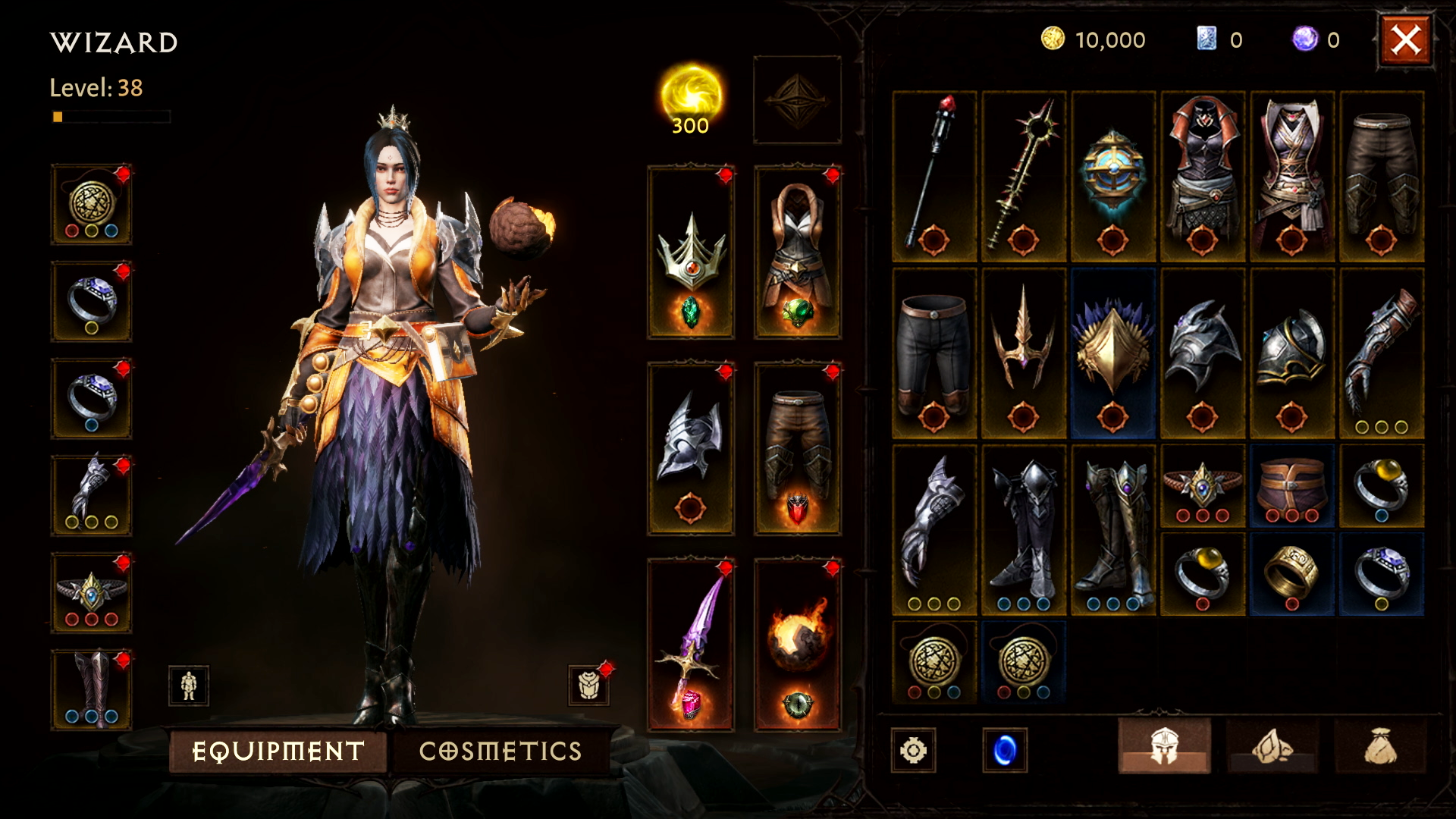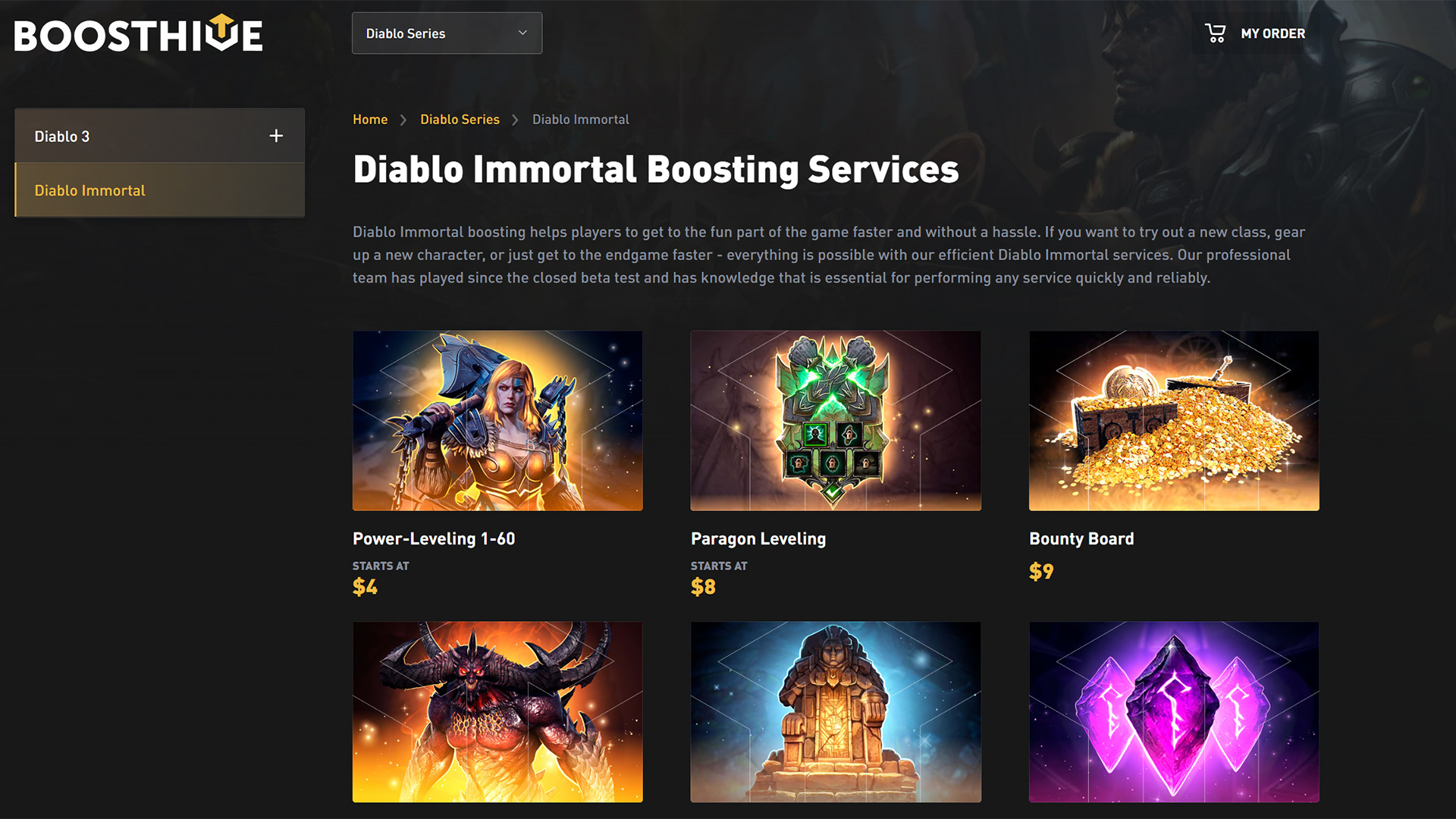Diablo Immortal is flooded with boosting services but few players are willing to pay
Plenty of websites will do the grind for you, but not many people are paying.

One of the things you'll notice a few hours into playing Diablo Immortal is that everything takes a long time. It's designed that way: Diablo Immortal is a free to play mobile action RPG that borrows a lot of MMO mechanics to keep you playing regularly. The PC version, while still in beta, is not substantially different. Once you hit level 35, the game halts your leveling progress and forces you to engage with its battle pass and daily challenge systems to progress. While there's nothing in the game to let you skip the sudden grind to the game's level cap, there are already many websites popping up that will help you out.
Diablo Immortal boosting services will take your character and level them up for a price. It's against Blizzard's terms of service to have someone play on your account, but it's a gray market that's existed for as long as MMOs and online games have. Websites like Boosthive offer to power level your character to max level (1 to 60 is $133), run your character through endgame Elder Rifts for rare loot (10 runs is $40), and increase your endgame Paragon level (1 to 30 is $214). Boosthive also offers similar services for Diablo 3 and World of Warcraft.
Boosthive isn't one of the names you'll see spammed in Diablo Immortal's global chat, but it is one of the main websites that'll show up in a Google search. Despite the game's controversial max level and legendary gem grind that would cost you potentially thousands of dollars to max out using the game's version of loot boxes, players aren't lining up for boosts, Boosthive's head of sales, Leon, told me.

The people that are paying for Boosthive's services, at least in the early stages of the game's release, just want to skip the slow leveling process. "Currently, the most popular services are powerleveling and Paragon leveling. I can't say we are surprised. These are usually the most common things in all Diablo games," Leon told me.
"Usually, monetization does not create a strong in-game advantage. But having a grind based gameplay can do that. Let’s take leveling as an example. People try to level on their own. They quickly find out that it requires a lot of time/effort or simply get bored from tedious processes. They ask us to help and we do that part so the client can move forward and enjoy new and interesting content," he said.
Diablo Immortal's legendary gems are the primary goal once you've hit the level cap and have a good set of gear. They give you perks like increased damage and modified abilities that can make a difference in the highest tiers of its PvE and PvP content. But their incredibly low drop rates (especially for the rarest ones) probably makes it less of a bargain to pay a site like Boosthive to run through several Elder Rifts for you versus paying for Crests in the game's cash shop to guarantee a gem per rift.
Legendary gems are the reason Diablo Immortal has seen heavy amounts of criticism lately and has been called pay-to-win. One Reddit user daymeeuhn did some rough math to determine that it would cost you about up to $80,000 to equip your character with a full set of gems. I asked for a comment from Blizzard about this price to max out your character and it declined.
Keep up to date with the most important stories and the best deals, as picked by the PC Gamer team.
Whether or not that number is realistic, it's emblematic of the scarcity that the game is built on, not unlike rolling for a character in Genshin Impact. It's no surprise that boosting services have appeared to try to capitalize on the people that don't have the time to invest into the game themselves, but the lack of popularity for them could be a sign that people are still feeling the game out, or worse: that there's nothing in it worth paying any money for anyway.
Tyler has covered videogames and PC hardware for 15 years. He regularly spends time playing and reporting on games like Diablo 4, Elden Ring, Overwatch 2, and Final Fantasy 14. While his specialty is in action RPGs and MMOs, he's driven to cover all sorts of games whether they're broken, beautiful, or bizarre.

